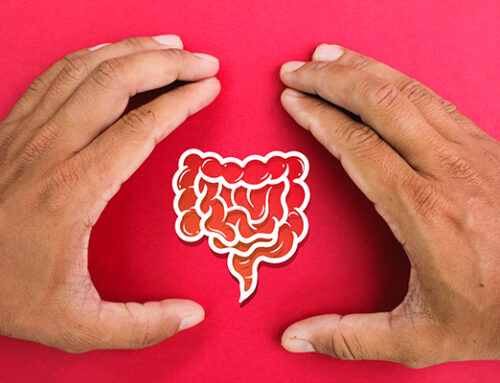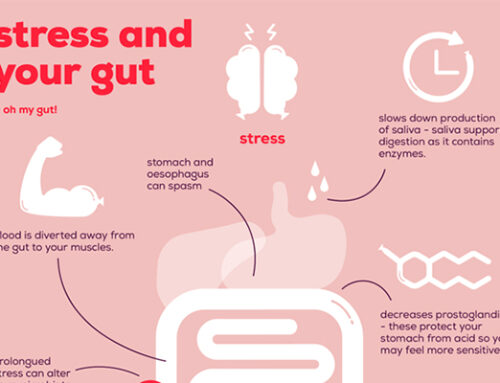 Though farting is often left for comedy and considered impolite, gross, it happens for a reason. Farting is a sign that your body is working as it should. Your digestive tract produces gas as a by-product while breaking down and processing sugars and starches that your body has trouble digesting. You may also swallow air when eating, chewing, or swallowing. If you’re experiencing regular farting, it means that you’re eating plenty of fiber and have a good amount of bacteria in your intestines. Passing gas is a benefit of a healthy body, and it can provide some quality information. Indeed, the type and duration can provide insights as to what’s going on with your health. There are six different types of gas, and here is what they say about your health.
Though farting is often left for comedy and considered impolite, gross, it happens for a reason. Farting is a sign that your body is working as it should. Your digestive tract produces gas as a by-product while breaking down and processing sugars and starches that your body has trouble digesting. You may also swallow air when eating, chewing, or swallowing. If you’re experiencing regular farting, it means that you’re eating plenty of fiber and have a good amount of bacteria in your intestines. Passing gas is a benefit of a healthy body, and it can provide some quality information. Indeed, the type and duration can provide insights as to what’s going on with your health. There are six different types of gas, and here is what they say about your health.
Scent-Free
If your farts are scent-free, they’re healthy and normal. It means that air has accumulated in the body. Almost 100% of farts are caused by swallowing air. Things like drinking carbonated beverages and frequently chewing wads of gum can all be contributing factors. The remaining 1 percent is typically hydrogen sulfide, the gas created when your body breaks down food. Sulfur is a gas found in healthy foods, like broccoli and beans. All the air buildup in our digestive system can exit our body – either as a fart or a burp. You can control the gas production in your body by eating slowly with controlled swallows and avoiding carbonated drinks and chewing gum.
Frequent Farts
Frequent farts are typically normal, too, since the average person usually passes gas about 14 to 23 times a day. Depending on your lifestyle and what you eat, you might experience slightly fewer or even more. While you may not keep tabs on the number of farts per day, you should know that more than 25 farts are considered normal. But should you experience persistent farting that’s followed by discomfort, bloating, or an awful smell, you may have a food allergy or intolerance.
Insta-Farts
Possibly, the scariest of all the farts. You are having a family lunch, you are two bites into the meal, and the gas tries to make a quick break for it. We’ve all been there. No, it’s not your insides retaliating against your food choices. The doctors call it gastrocolic reflex, and it’s one of your body’s natural reflexes that helps move things along. When food enters the stomach, it signals the colon to empty so that it can make room for what’s coming. As a result, the colon has increased motility in response to the stomach stretch with the ingestion of food.
 SBDs
SBDs
When it comes to SBD (Silent But Deadly) farts, the likely culprit are sulfur-rich foods. The eggs, meat, and vegetables, such as cabbage, broccoli, kale, garlic, and onion, can trigger this type of farts. Chewing gum is also a well-known suspect for these farts. There’s a small amount of indigestible sugar called sorbitol found in gum that makes you fart. These farts will either make no sound at all or sound like a short, powerful wind rush.
Additionally, Low-FODMAP diets can provide remarkable benefits for people dealing with common digestive disorders. Plenty of food is rich in FODMAP, such as apples, milk, cashews, and beans. FODMAPs are short-chain carbs that are resistant to digestion and rapidly fermented. Instead of being absorbed, they go to the end of your intestine, reaching your gut bacteria. Your intestinal bacteria then use these carbs for fuel, producing hydrogen gas and negatively affecting the digestive system in sensitive individuals.
Burning farts
If a fart burns your anus, odds are you can thank your love for spicy food for that, which might be beneficial for your health. Spicy foods contain capsaicin, the fiery compound found in chili peppers, which impart a fiery flame to receptors in our body, including our tongue and anus. Spicy compounds in foods may make the rectum and anus more sensitive, making the farts seem hotter. Clearing spicy food via a bowel movement tends to relieve the symptom. Avoid this by increasing fiber intake, eating fermented foods, or taking probiotic supplements to promote the gut microbiome.
Fart clusters
If you are experiencing frequent farts for hours on end, it means that your body is reacting to some food that you recently ate. Fart clusters can be non-smelly and smelly. Non-smelly fart clusters are usually caused by consuming plant foods like beans, lentils, and asparagus. Inulin, a soluble fiber found in many vegetables, can cause frequent gases. This fiber is also a very powerful prebiotic that feeds the healthy bacteria in your gut.
On the other hand, smelly fart clusters are most likely mainly caused by food intolerance, commonly by lactose or gluten. If you notice that your stool quota is falling behind with a significant increase in gas production, maybe it’s time to try stimulating movement with a laxative. Consider balancing out the proportion of protein and plant intakes. Consume more fiber-rich foods such as fruits, vegetables, and grains. True, these foods produce gas, but they help balance out your intestine bacteria, which can make your gas expulsion more regular.
Extremely stinky farts
Disorderly bacteria in your gut can cause extremely stinky farts. Prebiotics and probiotics can help neutralize the stench. If the foul gas persists, you should consider visiting a doctor. It can potentially reveal a health concern. These types of farts can also signify malabsorption, a disorder that occurs when the body cannot absorb nutrients from diets, such as carbohydrates, fats, minerals, proteins, or vitamins. Other conditions include lactose intolerance, irritable bowel syndrome, celiac disease, or an infection like gastroenteritis.







